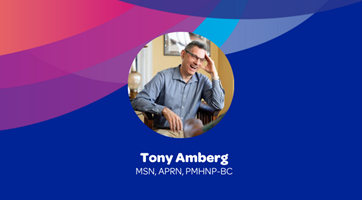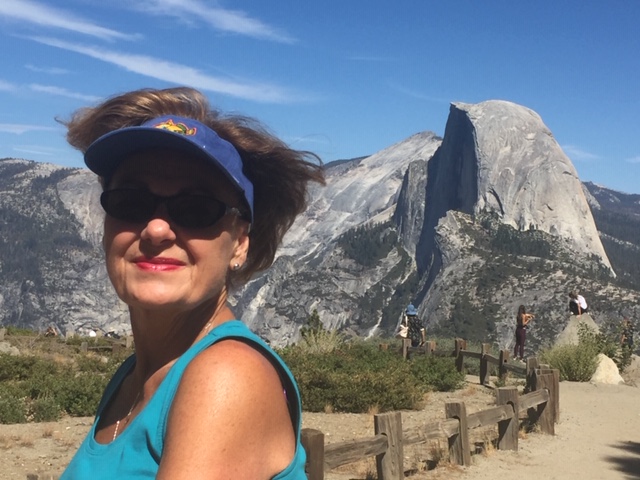Nurse Practitioner Spotlight
A career as a nurse practitioner can be replete with challenges and opportunities. NP Spotlight is your chance to learn more about NPs who are working to advance the profession and mental health in general. In this installment of the series, we profile Kathleen T. McCoy, DNSc, PMHNP, an associate professor at the University of South Alabama, College of Nursing.
NP Spotlight: Kathleen T. McCoy, DNSc, APRN, PMHNP-BC, PMHCNS-BC, FNP-BC, FAANP
As a part-time registered nurse and a married mother of 3 in the 1980s, Kathleen T. McCoy was living the American dream when her husband’s health began to deteriorate precipitously, rendering him unable to retain gainful employment.
“I was carrying my husband up and down steps all day. We were looking at economic collapse, trying to raise children ages 1, 6, and 17, with 1 launching into university life,” McCoy says. Her mentor and colleague Kathleen Gallo urged McCoy to seek a Master’s degree to reduce McCoy’s own physical output while having a distinct and direct effect on patients. Within 2 years, she had attained a Master’s degree in the Science of Nursing from the State University of New York at Stony Brook. McCoy became a Psychiatric Mental Health Advanced Practice Nurse.
Opportunities Abound
Little did she know how far she would go with this career. “The nursing paradigm holds a universe of opportunities,” McCoy says. In her years as a professional nurse, she has chaired the American Nurses Credentialing Center PMHNP Content Expert Panel, her proudest accomplishment. Moreover, she has built a Doctor of Nursing Practice (DNP) Nurse Practitioner and post-doctoral certificate program in Psychiatric Mental Health at Brandman University in Irvine, California.
She has published numerous peer-reviewed papers; led podium presentations for the American Association of Nurse Practitioners, the American Psychiatric Nurses Association, the Transcultural Nursing Society, and other organizations; and served as a faculty member of several graduate nursing programs. She was honored and recognized for exemplary contributions to the NP profession as a fellow in the American Association of Nurse Practitioners class of 2012. She has entrepreneurial experience of more than 4 years as CEO of her nurse-led private practice in the 2000s, which she achieved while earning a Doctor of Nursing Science degree from the University of Tennessee Health Science Center, Memphis, Tennessee.
Fortitude as Attitude
Her interests in nursing care range from treating patients with post-traumatic stress disorder to educating advanced practice nurses in the full scope of practice for psychiatric mental health (both as PMHNPs and clinical nurse specialists) and as a certified family nurse practitioner. Today she is an associate professor in the Community Mental Health Department of the University of South Alabama, Mobile, College of Nursing, where she teaches graduate nursing students.
“I never planned to be a faculty member,” McCoy said. The University of Tennessee, her alma mater, invited McCoy to a faculty position in 2007. Since then, she has found renewed inspiration in the diversity of students wherever she has been a faculty member. “Just like my patients are my heroes, so are my students,” she says. “It’s how they live with what they live with, and how students transcend barriers to achieve intended goals. It just knocks my socks off,” she says.
McCoy believes that the contemporary healthcare model needs to evolve further by educating payers, healthcare systems, and physician providers about the value provided by professional nurses of all levels. The medical model has been dominant in healthcare as the system tends to focus on disease rather than health promotion/prevention of disease, she notes.
“The biggest challenge now is turning that paradigm around. Nursing ran the public health sector at the turn of the last century. Now, the United States does not have a healthcare-centered model, but a medical one, one that focuses on symptoms and diseases rather than health promotion,” McCoy says. “Change is needed.”
A Bedside Matter
McCoy has long been a leading proponent for delivering health via technology to improve access to care. She notes that the practice of telehealth has been in use for more than 50 years, starting in the military, but has taken time to be adopted in wider healthcare. The COVID-19 pandemic, which shut down society as we knew it, has compelled providers to reconsider the delivery of care, forcing a shift to providing care through digital means: smartphones, tablets, and desktop computers to those with access.
“Patients can now be served at the bedside, even at home, virtually anywhere that internet connections are present. Home connections allow a more comfortable setting for patients, permitting provider access to the very place that may be helping or hindering health, the patient home environment. The climate of the living environment may be easier to assess through telehealth, where formerly, knocking on the door was the only way to see how people live,” McCoy says.
She works in a refugee-centered clinic, which has an international client base. “Through telehealth, healthcare providers are connected to much larger worlds and are educated by those patients they see,” she says. “We are able to make a real difference in helping people who may not have access to healthcare providers and to be able to care for them in a tangible way. We are able to ameliorate pain, reduce problems, and provide solutions, even when language and cost may be concerns.”
Kindness Is Returned
As an advanced practice nurse, McCoy’s recent research has focused on transcultural healthcare. Her interest in global health was piqued by her work at the University of Texas, where she worked closely with students from Mexico, Ethiopia, Bolivia, Argentina, Azerbaijan, and other countries.
“Working with other cultures is just the thing that has never left me,” she says, noting how she brought her interest in cultural health to her current position at the University of South Alabama. “What some of these students are doing to make it, and live with what they have, is riveting… faculty can lose them if not attending to their needs purposefully and proactively.” The skills of empathy and compassion are useful when shaping nurses.
As dedicated as McCoy is to the advancement of her profession and teaching, she is equally as impassioned about who she affects. “Systems of support must be in place for families, those broken and struggling, to be as healthy as possible as they proceed through life. That means community support because raising healthy families takes a village,” McCoy says. “This project and passion of mine will never end. It is larger than life, so it keeps me busy working on the local level where I have an immediate influence as a citizen and as a professional registered nurse.”
This endeavor may seem larger than her in a sense, McCoy muses, but is a goal that is well within reach. “I have heard that if the world was to end tomorrow, we should plant a tree. That’s me, planting trees to build a healthier society, starting at home, in families.”






